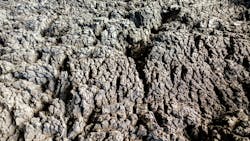Maine water industry highlights top challenges for 2025
Nearly 100 industry professionals and lawmakers met for the annual “Waffles and Water” breakfast event to review the highest priority water challenges Maine faces in 2025.
The 2025 legislative update was presented by the Maine Water Utilities Association and the Maine Water Environmental Association (MeWEA). Presenters included Craig Douglas, PE, AWWA director, Brunswick and Topsham Water District and Emily Cole-Prescott, Maine Water Environment Association and MeWEA past president.
Top three challenges for Maine’s Wastewater
The presentation highlighted the top three challenges for Maine’s wastewater industry in 2025.
Challenges include:
- Inadequate funding to address the 2021 PFAS mandate.
- Maine’s lacking waste management plan.
- Significant infrastructure threats related to climate change and aging, inadequate systems.
Top three challenges for Maine’s drinking water
Top challenges for Maine’s drinking water industry include:
- Aging infrastructure
- PFAS related cost increases
- Protection of public water rights
Funding issues
According to the Maine Department of Environmental Protection (DEP), there were $392 million in infrastructure funding requests from water utilities in 2024.
Only $63 million (14%) of those requests were funded.
In 2025, DEP says there are even more requests and even less funding, with only $56 million available.
The breakfast event looked to raise awareness for the unmet need for infrastructure investment, which could ultimately protect Maine’s environment, water bodies and drinking water sources.
Maine biosolid crisis
In early February 2025, DEP proposed a $50 million bond to help invest in innovative technology to reduce the volume of biosolids.
Maine Legislative Document (LD) number 25, sponsored by Maine Senator Stacy Brenner, would partially alleviate the financial burden being carried by Maine’s wastewater industry, which has over $3.1 billion in unmet and unfunded infrastructure needs, according to a press release.
“While Maine’s PFAS legislation sets the highest national standard, it remains an unfunded mandate and water utilities across Maine have silently carried that burden,” said Emily Cole-Prescott in a press release. “The state needs to define a holistic waste management plan to rely less on landfilling and more on investment in technology to safely dispose of biosolids, which has been a challenge.”
If approved by two-thirds of Maine’s legislators, the $50 million bond would be placed on the 2025 ballot for voters to approve.
“LD 25 is a step in the right direction to begin addressing procedural challenges and cost increases delivered by Maine’s PFAS legislation,” said Theresa Tucker, compliance manager, York Sewer District and MeWEA president, in a press release. “We must consider investing in our water infrastructure so we can continue protecting Maine’s drinking water resources, environment and water bodies. Maine’s water industry has faced inadequate funding levels for many years, and ratepayers cannot bear the burden alone.”


